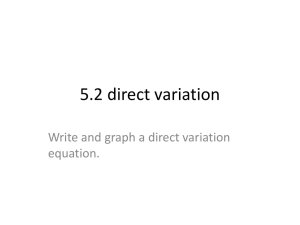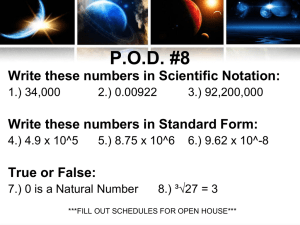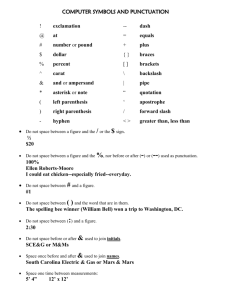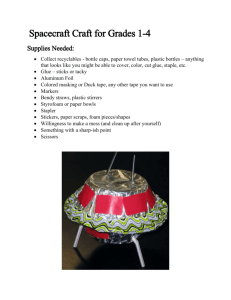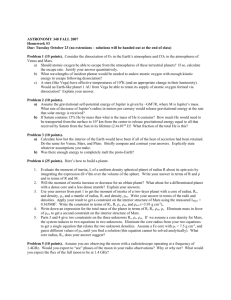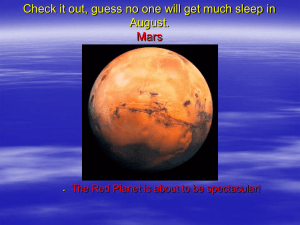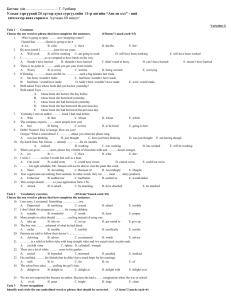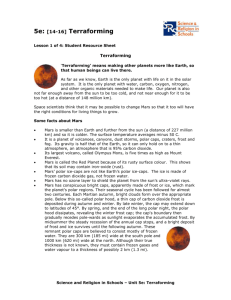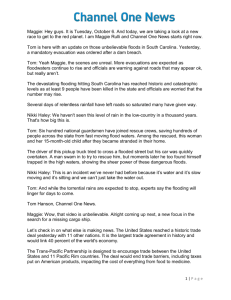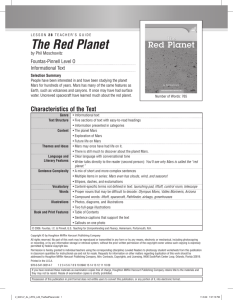File
advertisement
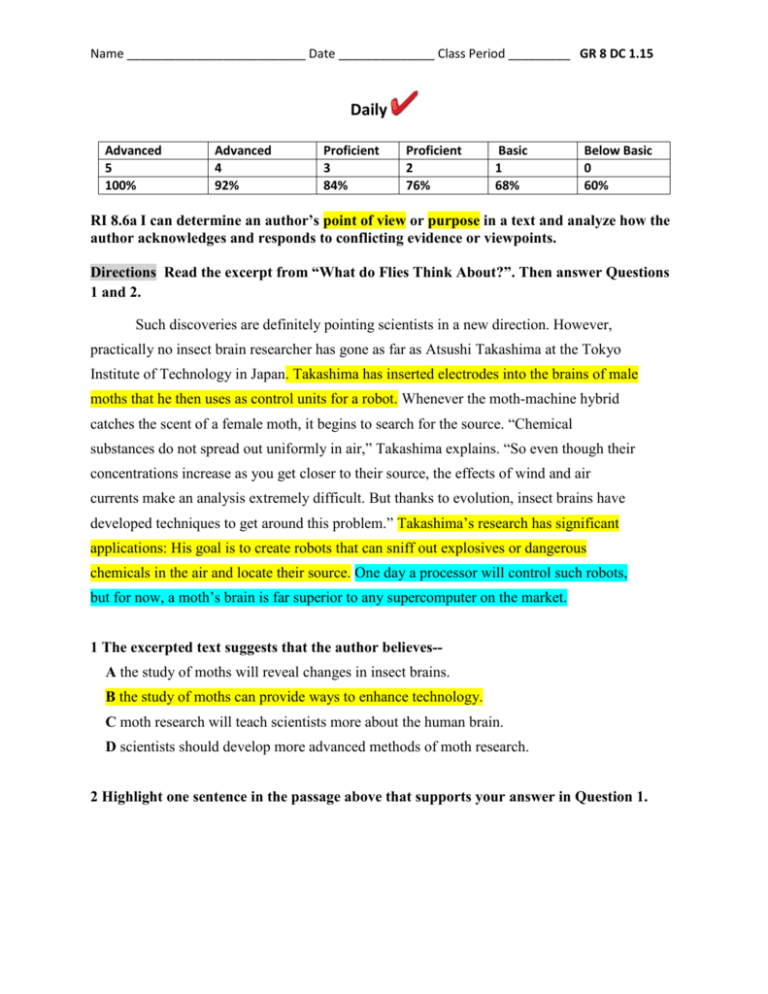
Name __________________________ Date ______________ Class Period _________ GR 8 DC 1.15 Daily Advanced 5 100% Advanced 4 92% Proficient 3 84% Proficient 2 76% Basic 1 68% Below Basic 0 60% RI 8.6a I can determine an author’s point of view or purpose in a text and analyze how the author acknowledges and responds to conflicting evidence or viewpoints. Directions Read the excerpt from “What do Flies Think About?”. Then answer Questions 1 and 2. Such discoveries are definitely pointing scientists in a new direction. However, practically no insect brain researcher has gone as far as Atsushi Takashima at the Tokyo Institute of Technology in Japan. Takashima has inserted electrodes into the brains of male moths that he then uses as control units for a robot. Whenever the moth-machine hybrid catches the scent of a female moth, it begins to search for the source. “Chemical substances do not spread out uniformly in air,” Takashima explains. “So even though their concentrations increase as you get closer to their source, the effects of wind and air currents make an analysis extremely difficult. But thanks to evolution, insect brains have developed techniques to get around this problem.” Takashima’s research has significant applications: His goal is to create robots that can sniff out explosives or dangerous chemicals in the air and locate their source. One day a processor will control such robots, but for now, a moth’s brain is far superior to any supercomputer on the market. 1 The excerpted text suggests that the author believes-A the study of moths will reveal changes in insect brains. B the study of moths can provide ways to enhance technology. C moth research will teach scientists more about the human brain. D scientists should develop more advanced methods of moth research. 2 Highlight one sentence in the passage above that supports your answer in Question 1. Name __________________________ Date ______________ Class Period _________ GR 8 DC 1.15 Directions Read the excerpt from “Space Travel: Getting There from Here.” Answer Questions 3 through 5. Where Will Humans Go Next? Most experts agree that humans’ next destination will be Mars, the red planet. Although today’s spacecraft are technically sophisticated, the combination of possible propulsion systems and the fixed realities of orbital dynamics means that no matter how advanced they become in the near future, it will still take astronauts three years to get to Mars. However, at the present time, even our most advanced science and technology could not bring them back. If space travel advances as it has throughout history, though, it's safe to assume people will find a way to get to Mars faster! 1 2 In the future, it may be possible to send people to Mars as one-way colonists, although this would be much more complicated than sending a Mars rover to the surface of the red planet. The crew members would have to take life-sustaining supplies not only for the duration of the flight, but also for the rest of their lives on an airless, foodless, waterless, freezing desert. It might be possible to grow some form of nourishment on board, but what might be grown and how it might be done is uncertain. Getting the crew from the spacecraft down to the planet safely is another challenge, as is providing some kind of housing once there. 3 So, for the time being, Mars exploration will have to be left to robotic explorers. 3 The author regards travel to Mars asA B C D a future certainty a waste of time the dream of scientists Newton's best work 4 Highlight the sentence in the passage above that supports your answer to Question 3. 5 In which of the following statements does the author express his viewpoint instead of providing facts? A "As later scientists learned, an object must travel at 25,000 miles per hour to escape gravityonly a huge rocket could provide that much speed." B The Chinese used rockets fueled by gunpowder as weapons as early as the 1200s." C "However, if space travel advances as it has throughout history, it's safe to assume people will find a way to get to Mars." D "Yuri Gagarin, a Russian, was the first human to leave Earth's atmosphere and orbit the planet."

